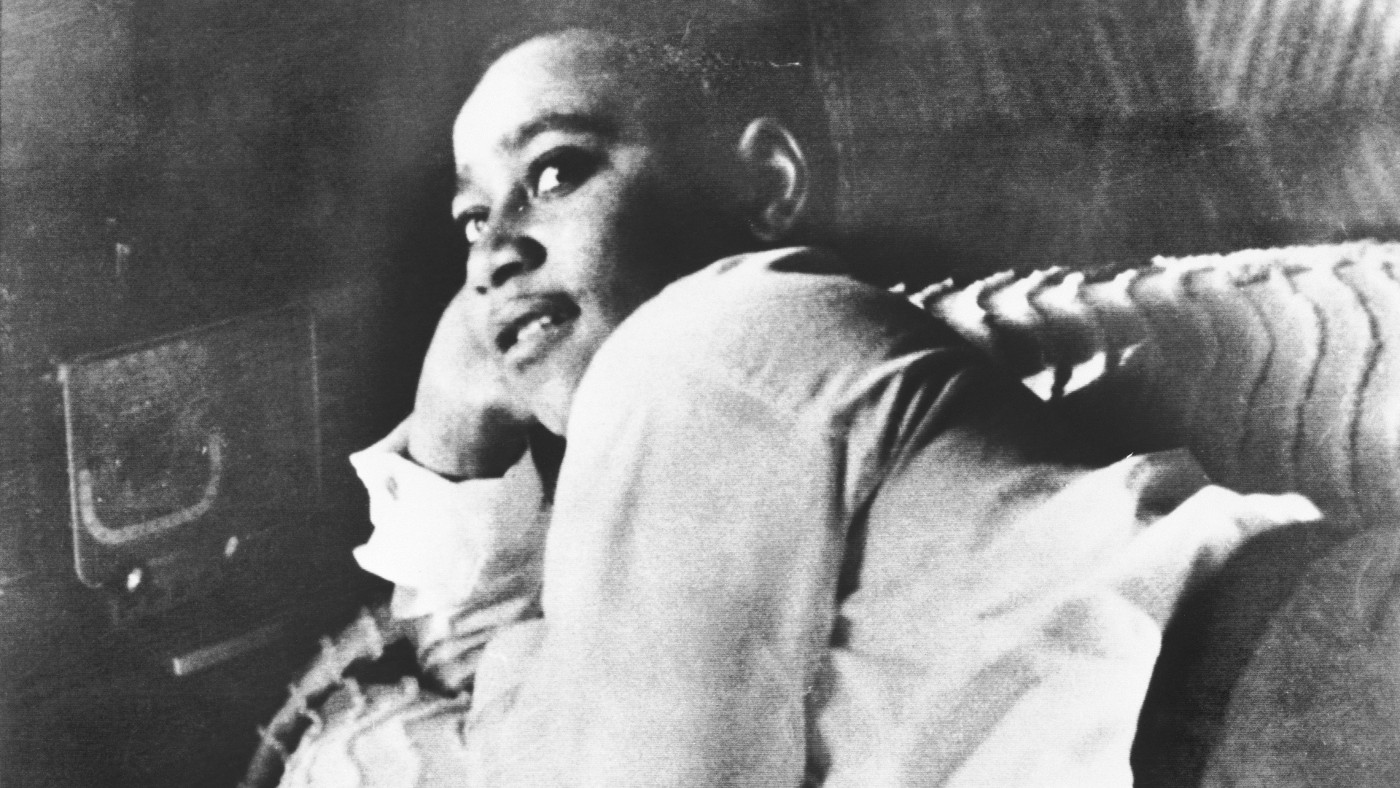Will Emmett Till ever get justice?
Black teenager was abducted, tortured and lynched by a group of white men in 1955

A free daily email with the biggest news stories of the day – and the best features from TheWeek.com
You are now subscribed
Your newsletter sign-up was successful
A white woman whose accusation against Emmett Till led to the black teenager’s murder 67 years ago will not be charged with kidnap or manslaughter, a Mississippi grand jury has ruled.
The jurors had listened to more than seven hours of testimony from investigators and witnesses before concluding that there was insufficient evidence to indict Carolyn Bryant Donham, now 87.
The Rev. Wheeler Parker, Till’s cousin and and the last living witness to his abduction, described the outcome as “unfortunate, but predictable” after “hundreds of years of anti-black systems”. USA Today said it was “unlikely” that Donham will now “ever be prosecuted for her role in the lynching”.
The Week
Escape your echo chamber. Get the facts behind the news, plus analysis from multiple perspectives.

Sign up for The Week's Free Newsletters
From our morning news briefing to a weekly Good News Newsletter, get the best of The Week delivered directly to your inbox.
From our morning news briefing to a weekly Good News Newsletter, get the best of The Week delivered directly to your inbox.
What happened to Till?
The 14-year-old Chicago boy was visiting relatives in Mississippi when he and some other children went to a shop in the town of Money where Carolyn Bryant Donham worked. She claimed that Till sexually harassed her. Relatives said that Till had whistled at the white woman, then 21, but denied her claims that he touched her.
Several nights later, Bryant’s husband, Roy, and his half-brother J.W. Milam, who were armed, went to Till’s great-uncle’s house and abducted Emmett. They tortured him and tossed his battered body into a river.
His “battered, disfigured body” was found days later in a river, weighed down with a heavy metal fan. His mother’s decision to open Till’s coffin for his funeral in Chicago “demonstrated the horror of what had happened and added fuel to the civil rights movement,” said Al-Jazeera.
Bryant and Milam were arrested and tried for the murder, but acquitted by an all-white jury. Thanks to the double jeopardy law, which prevents suspects from being tried twice for the same offence, they later admitted to the killing in a magazine interview, but were never re-tried. Both are now dead.
A free daily email with the biggest news stories of the day – and the best features from TheWeek.com
How did the case come back to court?
In June, a group searching the basement of the Leflore county courthouse discovered an unserved arrest warrant charging Bryant Donham, her husband, and Milam, with Till’s abduction in 1955. However, Bryant Donham was never taken into custody.
Although the warrant was made public at the time, the then-sheriff told media he did not want to “bother” a mother with two young children at home, noted the BBC.
Till’s great-uncle, Moses Wright, from whose home the boy was abducted, put Bryant Donham further into the frame when he testified at the trial that a voice “lighter” than a man’s had identified the boy from inside a pick-up truck. Also, according to FBI files, Bryant Donham had told her husband earlier the same evening that at least two other black men were not Till.
However, in an unpublished memoir that surfaced last month, Bryant Donham wrote that she did not know what would happen to Till when she made her accusation, noted CNN.
She also claimed that she had denied Till was the boy who had allegedly harassed her when the two men brought him to her for identification, and said it was in fact Till who identified himself to the men.
What happens next?
The opportunities for legal action may have all been exhausted, say commentators.
“For more than two decades, prosecutors and legal experts have indicated that there were dwindling legal avenues for holding Ms. Donham – or anyone – criminally responsible for the abduction, torture and killing of the teenager,” said The New York Times.
With investigations closed, no indictments or charges issued, and witnesses “ageing or dying,” the most recent development “could very well be one of the last options for prosecution in the case,” it added.
However, the case continues to be a potent symbol. In March, US president Joe Biden signed into law an anti-lynching bill named after Till. The Voice noted that the legislation was successfully passed at the 200th attempt to get it through the Congress and Senate.
-
 Antonia Romeo and Whitehall’s women problem
Antonia Romeo and Whitehall’s women problemThe Explainer Before her appointment as cabinet secretary, commentators said hostile briefings and vetting concerns were evidence of ‘sexist, misogynistic culture’ in No. 10
-
 Local elections 2026: where are they and who is expected to win?
Local elections 2026: where are they and who is expected to win?The Explainer Labour is braced for heavy losses and U-turn on postponing some council elections hasn’t helped the party’s prospects
-
 6 of the world’s most accessible destinations
6 of the world’s most accessible destinationsThe Week Recommends Experience all of Berlin, Singapore and Sydney
-
 Anti-racism policing unit is accused of racism
Anti-racism policing unit is accused of racismSpeed Read Police Race Action Plan criticised for treating minority staff members as ‘troublemakers or difficult’
-
 Why the FBI is investigating a spate of hangings
Why the FBI is investigating a spate of hangingsIn Depth Recent deaths of six African-American and Hispanic people spark fears of lynchings
-
 Exeter University law students expelled over racist WhatsApp messages
Exeter University law students expelled over racist WhatsApp messagesSpeed Read Screenshots of group’s ‘bigoted’ comments were leaked on social media